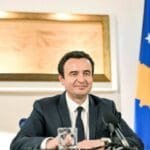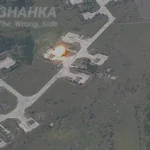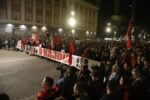Having remained silent since he became known as a key contender to fill Miroslav Lajčák’s position as dialogue facilitator, former Slovenian President Borut Pahor finally had a few things to say about his potential appointment.
He sent messages to the Prime Minister of Kosovo, Albin Kurti, regarding the issue of the Association and more to the President of Serbia, Aleksandar Vučić; the latter in broader terms than just an unfulfilled obligation.
To European leaders, Pahor said, “I tell them I have answers to many questions about the (Kosovo-Serbia) dialogue except for one thing, which is our common question…”.
“What is our stance towards President Aleksandar Vučić and his government? Do we see him as the problem or as a legitimate part of this political process,” Borut Pahor posed the question in his interview with N1.
Here he was asked about Vučić’s statement at the UN Security Council that “Slovenians are disgusting.”
“Such indecent statements should not be tolerated in either domestic or foreign policy,” said Borut Pahor. “These are missteps that actually harm the person making such declarations the most.”
Pahor stuck to the Western mantra – though he said, “not everyone thinks this way” – that “we must do everything to bring Serbia to our side: regardless of what we think about President Vučić and his government.”
Where he took a firm tone was on the issue of Banjska – the paramilitary and terrorist attack – where although he avoided the term “terrorist attack,” he drew parallels with the ‘little green men’ in Crimea in 2014.
“If the official authorities of Serbia were behind this, knew about it, supported it, or anything else… this is very concerning and changes my view of how it might be possible to reach an agreement (for normalization with Kosovo) with these current authorities,” Pahor said.
“No one has yet provided a definitive answer to this, but it was a concerning act that made it clear that real war, not just incidents, could return to the Western Balkans,” Pahor added.
He was asked explicitly, “was it a terrorist attack,” but here Pahor switched to diplomatic language.
“There were doubts, as it involved actions reminiscent of the first steps taken by Russian soldiers in Crimea. But here we cannot draw parallels because we do not know exactly what it was about,” he added.
“Therefore, it seems to me that it would be in the interest of the Serbian authorities to be extremely transparent about the actions of those responsible for the recent incidents, but this has not yet happened.”
Regarding how he expects the situation with Radojčić to proceed, whether he should be held accountable in Serbia or extradited to Kosovo – as demanded by the Kosovar authorities – Pahor was somewhat ambiguous.
“Here we expect actions in accordance with Serbian and international laws, which would correspond to sanctions for such an act, which should not have any national rights in either Serbia, Kosovo, or anywhere in the international community,” he added.







